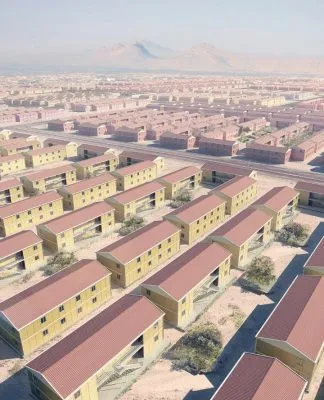Plans are underway for the construction of 600 houses in Windhoek. This was revealed by Tuafi Shafombabi, a spokesperson for the National Housing Enterprise (NHE). According to Shafombabi, the cost of the houses would be about N$250 million.
NHE has thus far asked residents who meet its requirements to register for the houses in Windhoek’s informal settlements. In order to register for the houses being built in Windhoek’s informal settlements, Shafombabi told the residents to visit Okuryangava’s Stop and Shop soon.
The Minister of Urban and Rural Development, in partnership with the City of Windhoek and the Khomas Regional Council, recently launched the NHE informal settlement upgrading project.
NHE informal settlement upgrading project
The project began in 202. According to Shafombabi, since then almost 400 houses have been built. In addition, she stated that beneficiaries who have access to all municipal services are encouraged to register. The services in question include title deed owners, lease agreement holders, and beneficiaries.
The most recent payslip or other proof of income, copies of the title deed, or lease agreement documents, would be required. Moreover, Shafombabi said a police declaration giving details on one’s source of income would also be required. This is in cases where one’s payslip went missing or had none.
The project delivered 100 homes at Okuryangava, in the John Pandeni constituency, in June.
Call for the community’s cooperation in the project for construction of the 600 houses in Windhoek
Erastus Uutoni, minister of urban and rural development commented on the project. He said that the parties involved in constructing houses face difficulties and that the community’s cooperation is necessary.
In addition, he said that the community faces some difficulties, ranging from slow processes to affordability. The minister added that the local residents are requesting water and electricity meters.
Sade Gawanas, the mayor of Windhoek, on the other hand, urged partners to support the project’s acceleration. Reasonably priced housing, Gawanas stated, aims to promote movement and help people out of poverty.
Affordable housing, in her opinion, uplifts residents, encourages social connections, reduces overcrowding, attracts business, and reduces crime rates.

































